Editor’s Note: Mennonite Mission Network has issued an urgent call for winter volunteers at the St. Maria Skobtsova House in Calais, France. Learn more about this hospitality ministry from Mosaic Partner in Ministry Peaceful Borders, and from a former volunteer who is part of a Mosaic congregation.
Building Community in a Calais, France Suburb
By Simon Jones
Surrounded by a high wall and secure gate is a liminal place between hardship and home that offers the hope of respite and refuge. Up to fourteen women and children at any one time live there.
The well-appointed house is filled with the carefree laughter of preschoolers, its kitchen alive with the smells of cooking, as women, starved of the opportunity to provide for themselves and their families, now cook and gossip and share food with everyone in the house.
This is La Maison St. Maria Skobtsova (MSH), opened a decade ago to provide a place of safety and rest for displaced people from across North Africa and the Middle East. Over that time, it has been home to Eritrean men, volunteers working across the city, and now to women and their children. It has occupied two sites, moving to this present one in the summer of 2025.
For the last three years, the house has been overseen by Mennonite Mission Network workers, Joseph and Rachel Givens, who moved to Calais with their two boys in 2022. They work with a group of volunteers overseen by a management committee, to ensure the smooth running of the house and to accompany the guests throughout their stay.
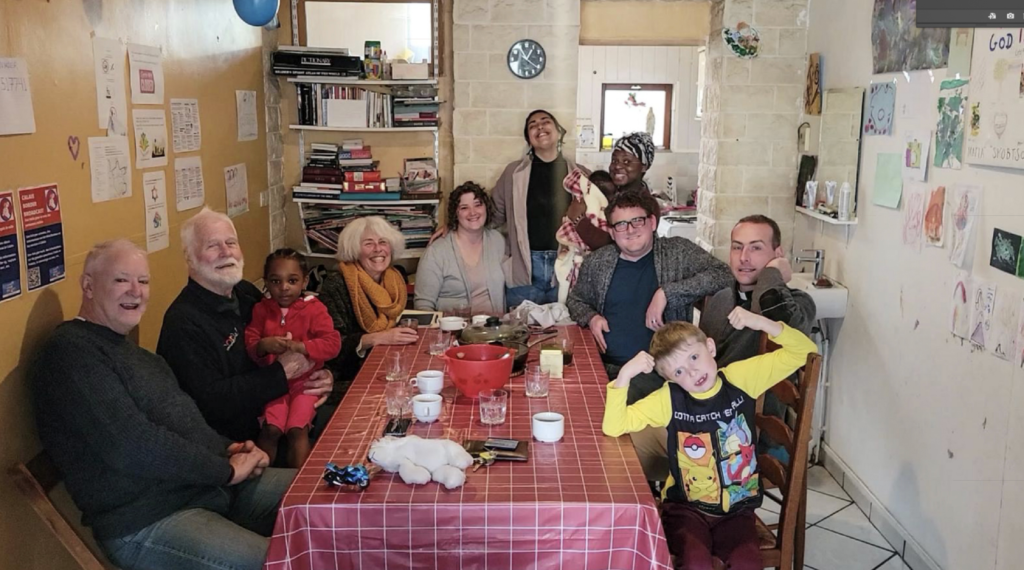
Volunteers come from across the world, though mainly Europe; they serve for a few weeks to three months or more. Some come only once, but others come for a term, return home and come back once they have refreshed their bodies and bank balances. Volunteers share the running of the house and the serving of the guests. The work is joyous and demanding–from cleaning bathrooms to accompanying guests to medical appointments, playing with children, shopping for supplies, and most importantly, joining the daily prayers of the house community. MSH exists to be a prayerful presence among the displaced in Calais.
Life in the house is rich and complex. One of the volunteers, a retired French nun, says, everyone in the house is always on the point of leaving. Leaving is a constant that everyone lives with. She adds that “the community is a dynamic place, full of life, hope and energy, full of young people keen to make something of their lives.” These people make the community what it is.
The house is full of difference—different countries and continents, different life experiences, different religious understandings and denominations. It works because Givens and the volunteers help these different people to get along, form community, and support one another.
You can get more information about the house from me at simon@peacefulborders.org.
A Month of Hospitality in Calais
by Joyce Hunsberger
The Mennonite Mission Network SOOP assignment in Calais, France, offers the chance to be a caring presence in the Maria Skobtsova House. Named for a Russian Orthodox saint who cared for refugees, migrants, the unhoused, and Jews in Paris during the second world war, the house is a refuge for women and children who have fled their home countries and hope to cross the English Channel to seek asylum in England. Smugglers charge high fees for dangerous crossings in overcrowded inflatable boats; drownings occur each month. One guest I met had already tried to cross six times.
I spent a month living with 13 guests from Iraq, Iran, Eritrea, Libya, and Sudan. Volunteers came from across Europe, and together with guests we shared daily chores. Since my stay in 2024, the community has moved to a beautifully renovated building with more space, including a large new kitchen. The days follow a gentle rhythm of Taizé songs and prayers, plus occasional outings to the beach, a café, or the canal. Arabic was the most common language in the house, though I enjoyed speaking French in town and even used some German with an Eritrean family who had lived their for a time. Google Translate helped us bridge the rest.
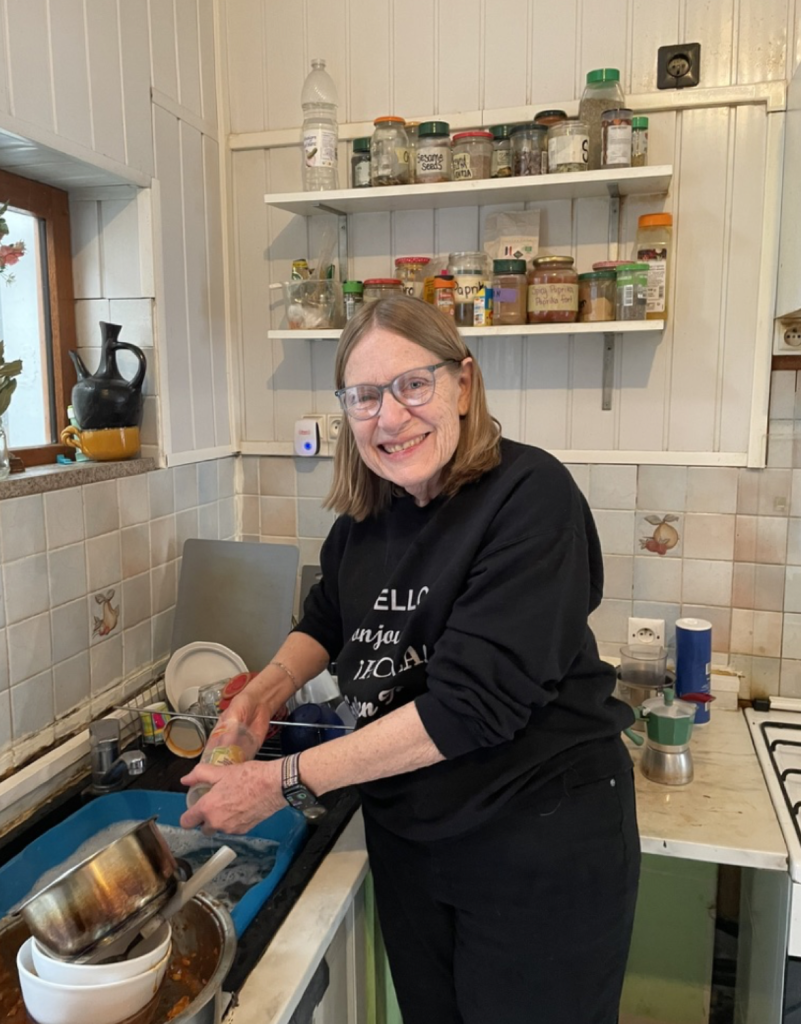
The main “qualification” for being here is simply to treat residents as siblings, children of the same Father. It is not hard to do! Guests are grateful for a safe home. I offered English lessons, and they participated eagerly. Each evening the whole household shared dinner; Berbere (a favorite Eritrean spice) and fresh injera (a spongy sourdough bread) filled the kitchen daily. Donations of French bread were always on hand, along with Cheerios for breakfast.
Other organizations support refugees in Calais, and the house collaborates closely with them. The men live in a camp outside town, which authorities dismantle every 48 hours, though the men return the next day. One day we chopped wood for them to use for cooking and warmth.
Though the experience was challenging, volunteers were well supported. Whatever gifts you bring are enough. I came home changed, and from Pennsylvania I still whisper prayers for the house in Calais, a place filled with courage, welcome, and hope.
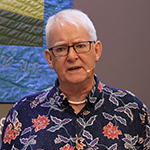
Simon Jones
Simon Jones is a writer, activist, theologian, and Baptist minister. He co-founded Peaceful Borders in 2016 to support community formation in the Calais Jungle. He also co-founded the safe house in Calais in 2016. He is the author of 10 books on New Testament themes and ecclesiology.
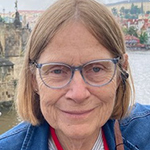
Joyce Hunsberger
Raised in New England, Joyce Hunsberger moved to PA to teach French. Her two daughters were raised at Perkasie (PA) Mennonite, where she continues to be an active member. She has been happily living at Souderton Mennonite Homes for the past seven years.
Mosaic values two-way communication and encourages our constituents to respond with feedback, questions, or encouragement. To share your thoughts or send a message to the author(s), contact us at communication@mosaicmennonites.org.

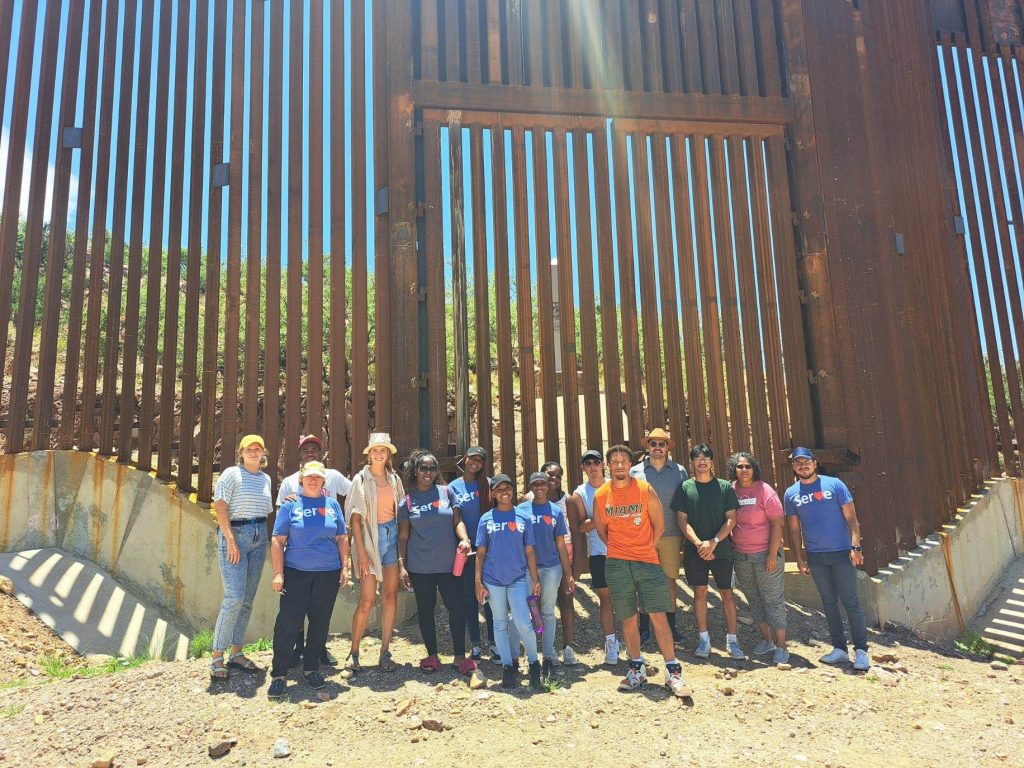
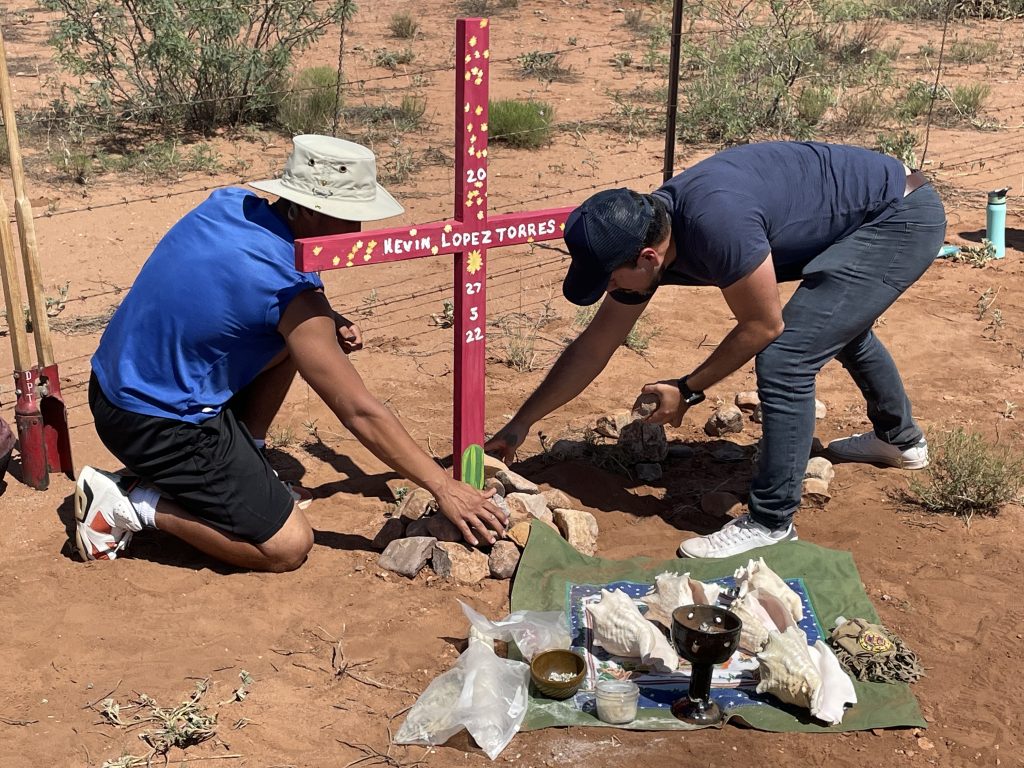
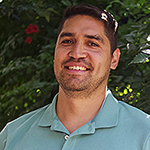
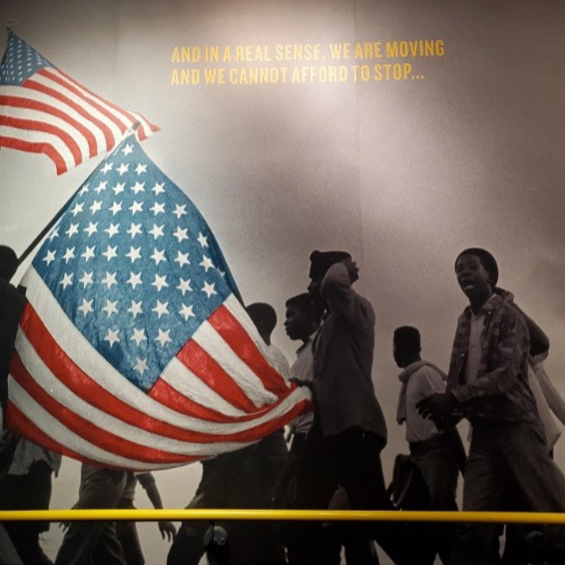
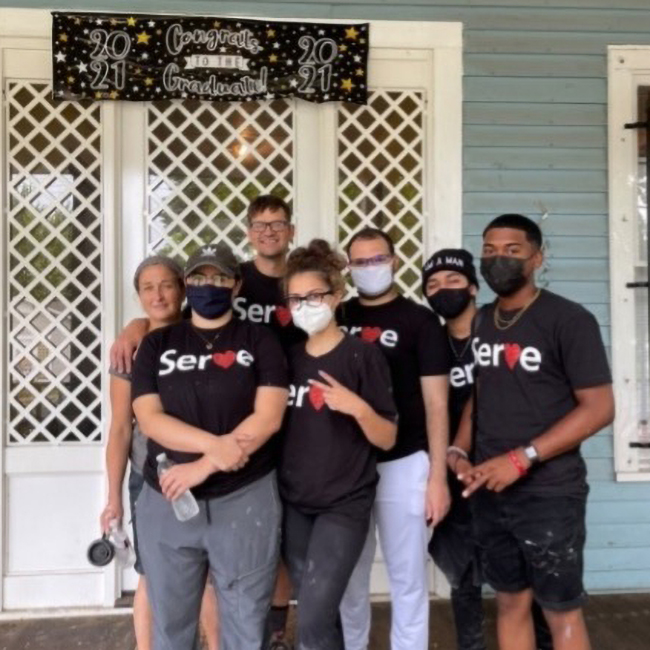
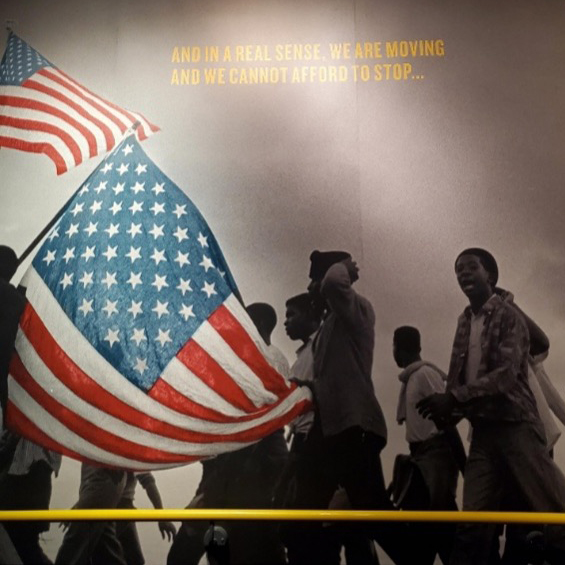
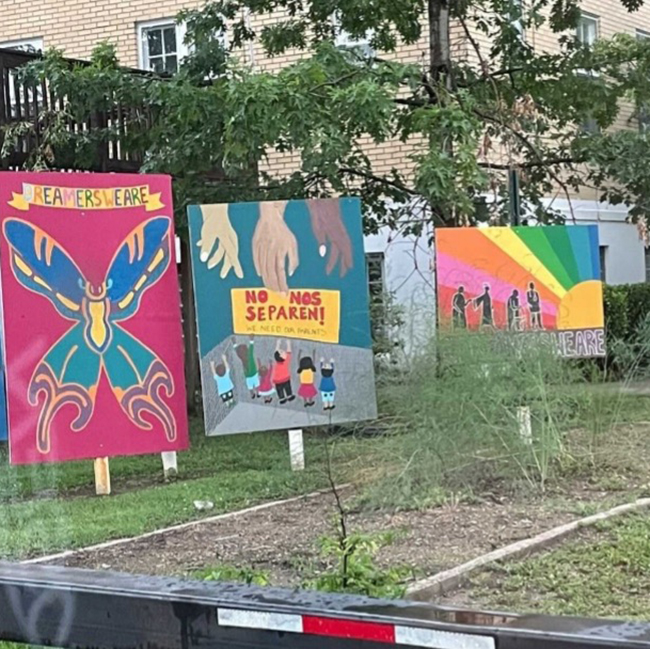
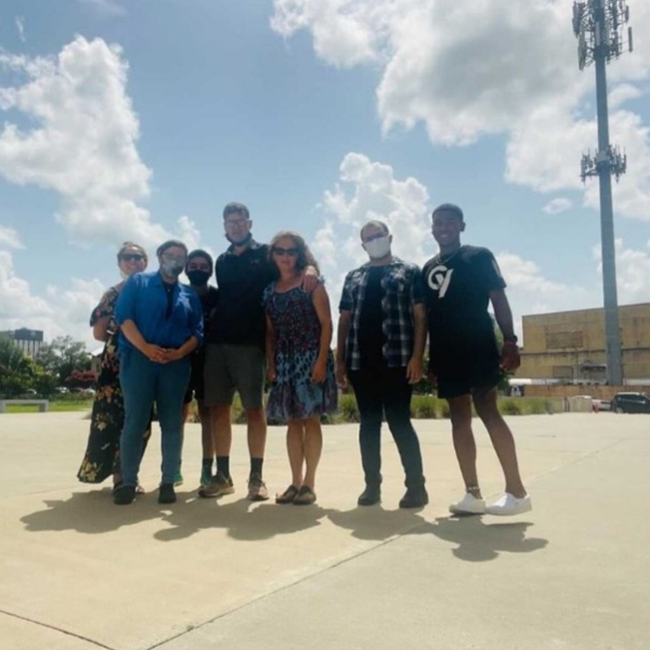
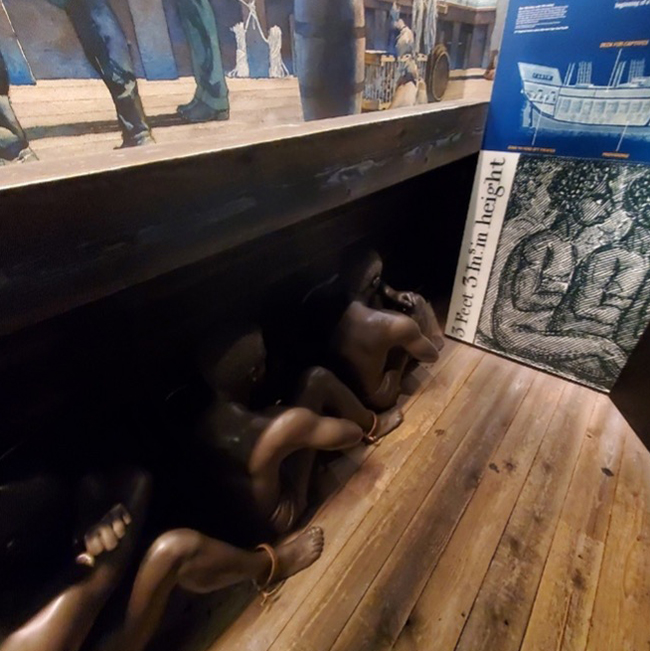
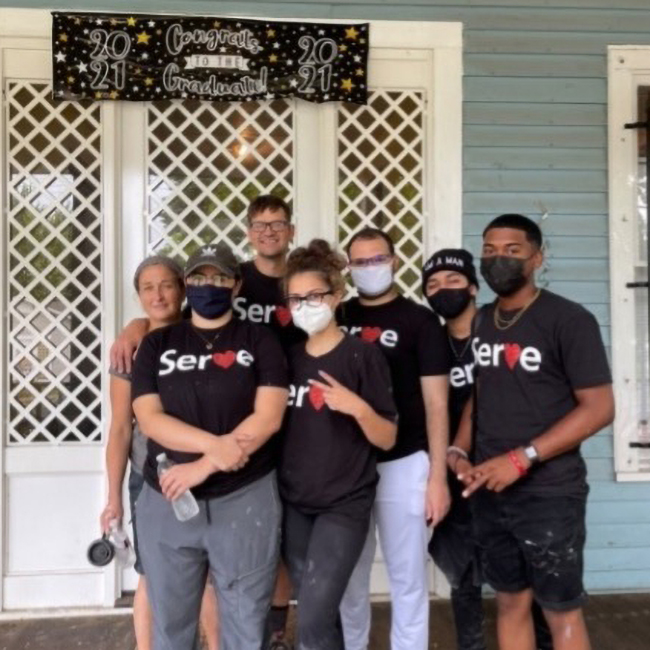

 Earlier this year, for three weeks, I took the time to re-immerse myself in Spanish. I chose a school removed from familiar communities so that I’d have to be a student only. Though I did some work from Mexico, my immediate environment was school and navigating through an attempted Spanish upgrade. It was both humbling and invigorating.
Earlier this year, for three weeks, I took the time to re-immerse myself in Spanish. I chose a school removed from familiar communities so that I’d have to be a student only. Though I did some work from Mexico, my immediate environment was school and navigating through an attempted Spanish upgrade. It was both humbling and invigorating. While studying, I was reminded of the beauty and brokenness of the world. As a student in a secular language school, I found many people seeking and searching. My co-learners came from all over the world to a small city in Mexico’s Yucatán Peninsula to learn, to relax, to find something. I was invigorated by learning alongside them in their search. Admittedly, more often than not, the church was far from conversation and their search. Some were curious about my work and spirituality. Others avoided the conversation even when it surfaced.
While studying, I was reminded of the beauty and brokenness of the world. As a student in a secular language school, I found many people seeking and searching. My co-learners came from all over the world to a small city in Mexico’s Yucatán Peninsula to learn, to relax, to find something. I was invigorated by learning alongside them in their search. Admittedly, more often than not, the church was far from conversation and their search. Some were curious about my work and spirituality. Others avoided the conversation even when it surfaced. But in these three weeks, I was reminded of my own call to serve the church as a pastor. It was a reminder of the commitments that I made to search out ways that the Gospel might really mean hope, freedom, and redemption for persons who are seeking and stumbling, for those who need comfort as well as those who need to be discomforted. It was a reminder to pay attention to all that is beautiful and broken, to find times when I might also be able to say as Jesus did, “the reign of God is near.”
But in these three weeks, I was reminded of my own call to serve the church as a pastor. It was a reminder of the commitments that I made to search out ways that the Gospel might really mean hope, freedom, and redemption for persons who are seeking and stumbling, for those who need comfort as well as those who need to be discomforted. It was a reminder to pay attention to all that is beautiful and broken, to find times when I might also be able to say as Jesus did, “the reign of God is near.” We were all drawn together on that cold, windy Monday evening, February 13, by the promise of fresh enchiladas and tostadas made by the members of Centro de Alabanza, along with some warm conversation with James Krabill of
We were all drawn together on that cold, windy Monday evening, February 13, by the promise of fresh enchiladas and tostadas made by the members of Centro de Alabanza, along with some warm conversation with James Krabill of  Throughout the the evening, James shared Biblical principles about how the Cross brings reconciliation on a cosmic yet personal scale. He then reminded us that the ministry of reconciliation is God’s highest priority in the cosmos. At this point I leaned in, realizing how often this simple calling gets strangled by the tyranny of the urgent.
Throughout the the evening, James shared Biblical principles about how the Cross brings reconciliation on a cosmic yet personal scale. He then reminded us that the ministry of reconciliation is God’s highest priority in the cosmos. At this point I leaned in, realizing how often this simple calling gets strangled by the tyranny of the urgent. At this point, we changed tables to meet someone new and to share about our experiments and obstacles encountered in mission. I had the privilege of sitting with Lynne Allebach, the lay pastor from Arise Community Outreach, and Fernando Loyola, pastor of Centro de Alabanza. We reminisced about our own unexpected appointments, and commented on the unique shape of the ministry of reconciliation in our different settings. At the end of the evening, James offered a few final remarks, namely that Christianity comprises about one third of our planet, and that Islam comprises about one fourth of our planet. This is paramount to the ministry of reconciliation. We must recognize the task before us now, for the life of the world!
At this point, we changed tables to meet someone new and to share about our experiments and obstacles encountered in mission. I had the privilege of sitting with Lynne Allebach, the lay pastor from Arise Community Outreach, and Fernando Loyola, pastor of Centro de Alabanza. We reminisced about our own unexpected appointments, and commented on the unique shape of the ministry of reconciliation in our different settings. At the end of the evening, James offered a few final remarks, namely that Christianity comprises about one third of our planet, and that Islam comprises about one fourth of our planet. This is paramount to the ministry of reconciliation. We must recognize the task before us now, for the life of the world!


